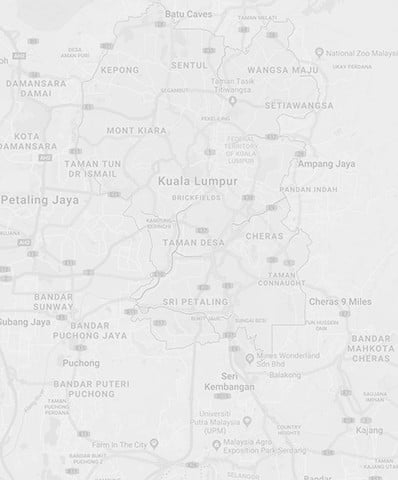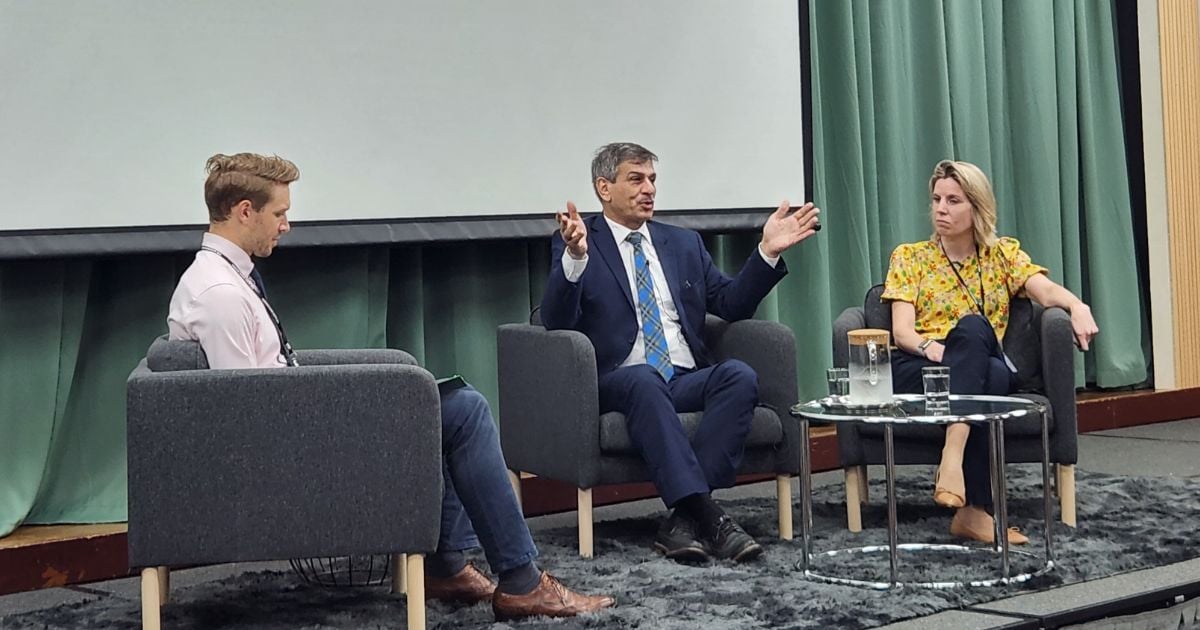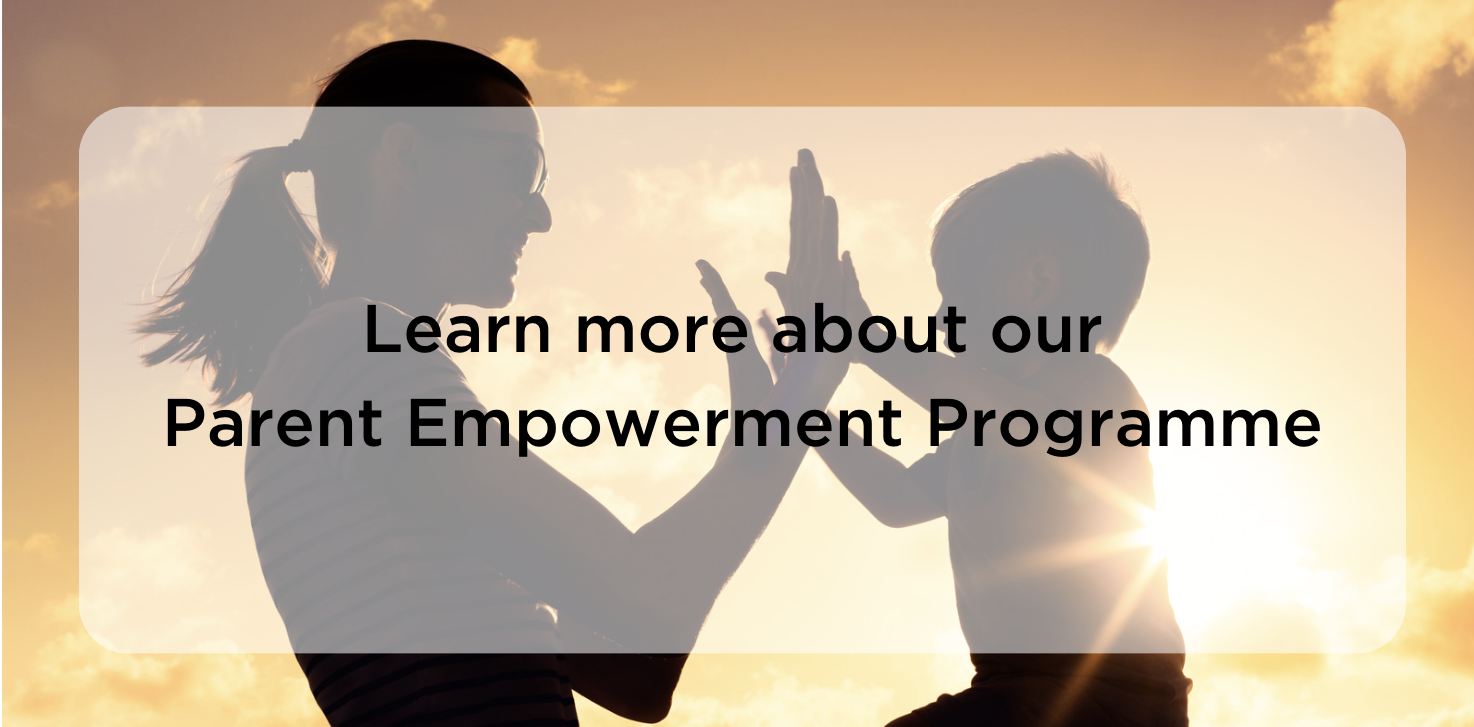Ever since machines started taking over physical labour and the most recent Artificial Intelligence (AI) arms race rumoured to be capable of taking over the world, global educators have been researching how AI affects our children’s development and their future careers. There is one thing that AI lacks which is ‘emotional intelligence’, and this skill, as well as resilience, are essential for young learners today to develop in order to future-proof their life purpose.
We had the pleasure of having Prof. Mushtak Al-Atabi for our June edition of ‘A Conversation with’ together with our Head of School, Sian May, moderated by Tim Bottomley, Assistant Principal, Learning and Teaching.
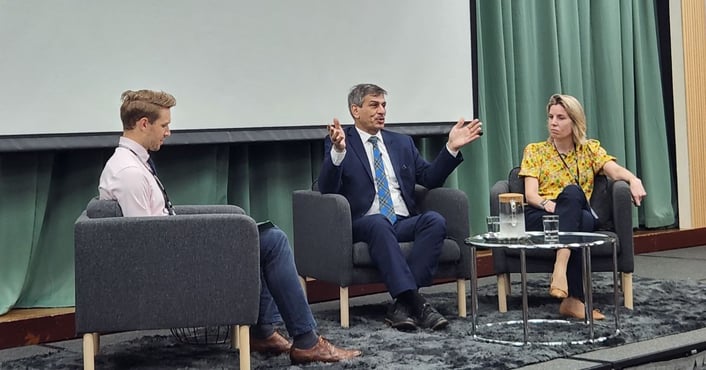
Professor Mushtak Al-Atabi is currently the Provost and CEO at Heriot-Watt University, Malaysia. He is a Fellow of the Institution of Mechanical Engineers (FIMechE), Chairman of the Vice Chancellors’ Council for Private Universities Malaysia (VCCPU) and a Board of Director at the British Malaysian Chamber of Commerce (BMCC). Professor Al-Atabi is an innovative educator who believes that the main goal of education is to mobilise an individual’s purpose into a positive impact on the world. He pioneered Purpose-Led Education, CDIO (Conceive, Design, Implement, Operate) methodology and delivered the first MOOC (Massive Open Online Course) in Malaysia. He has also published three books, “Shoot the Boss,” “Think Like an Engineer” and “Driving Performance” and he has numerous research publications, awards and honours.
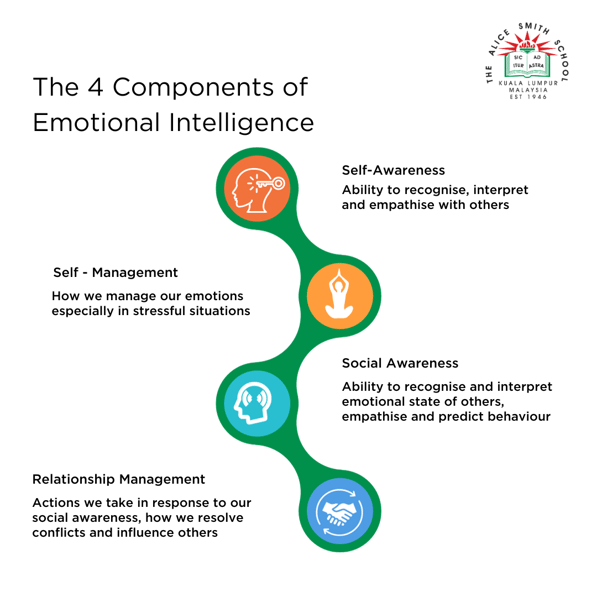
Key points from the conversation;
- Emotional intelligence is the ability to understand and appreciate emotions in others and in ourselves. There are four core competencies to emotional intelligence; self awareness, self management, social awareness and relationship management. These four competencies are essential skills that are needed to be successful in life, work and relationships. IQ on the other hand links to genetics and is harder to improve on, while emotional intelligence can be taught and improved on.
- Lack of purpose in young people has become a prevalent issue on a global scale. Writing an impact statement will help young people know why they are here. Adults can also benefit from this exercise especially when guiding young people to find their purpose in the world.
- Humans contribute these three capabilities to any endeavour; Cognitive, Emotional and Creativity. AI will change education beyond recognition in about two to three years. However, the future is still ‘human’. Human-led assessments will be more valuable than AI-assisted assessments. Human-led assessments are more authentic and credible. So therefore, the education sector will always have more opportunities for humans. AI may replace teachers, but human teachers will always be able to bring education to students to the next level.
- There are downsides to AI which include digital impersonations. AI is now able to make it look like it was you in the video saying things that you never said. It needs to be properly regulated and we need to outlaw the faking of humans. The notion of truth is under threat and a lot of pressure now. This is another opportunity for education, how do we educate children that we should only believe information from credible sources only.
- Start teaching emotional intelligence to children when they are young and not only in their teenage years. We work on each student as a person and as an individual and how they connect to the wider community. Listening to them and leading by example are sure ways to lead them to their life purpose and help them make their impact statements come true. As parents and educators, know your own impact statement too.
Interested in finding out more? Watch the full recording with Prof. Mushtak Al-Atabi below.
Sign up for our upcoming Parent Empowerment Programme!
Mobilising Purpose to Positive Impact Workshop by Heriot-Watt University
29th November 2023, Secondary Campus
Imagine a world where everyone is clear about their purpose and impact, and people gravitate towards team, groups and organisations based on a sense of common purpose. At Heriot-Watt University Malaysia, every member of its community is encouraged to develop an ‘Impact Statement’ to describe how they would like to impact the world beyond themselves. The same workshop is now being offered to our KLASS parent community in order to encourage them to go on a journey of discovering their purpose and mobilising it into a positive impact on their children and the world. The workshop will be followed by a Coffee, Tea & Chat with our Governors.
